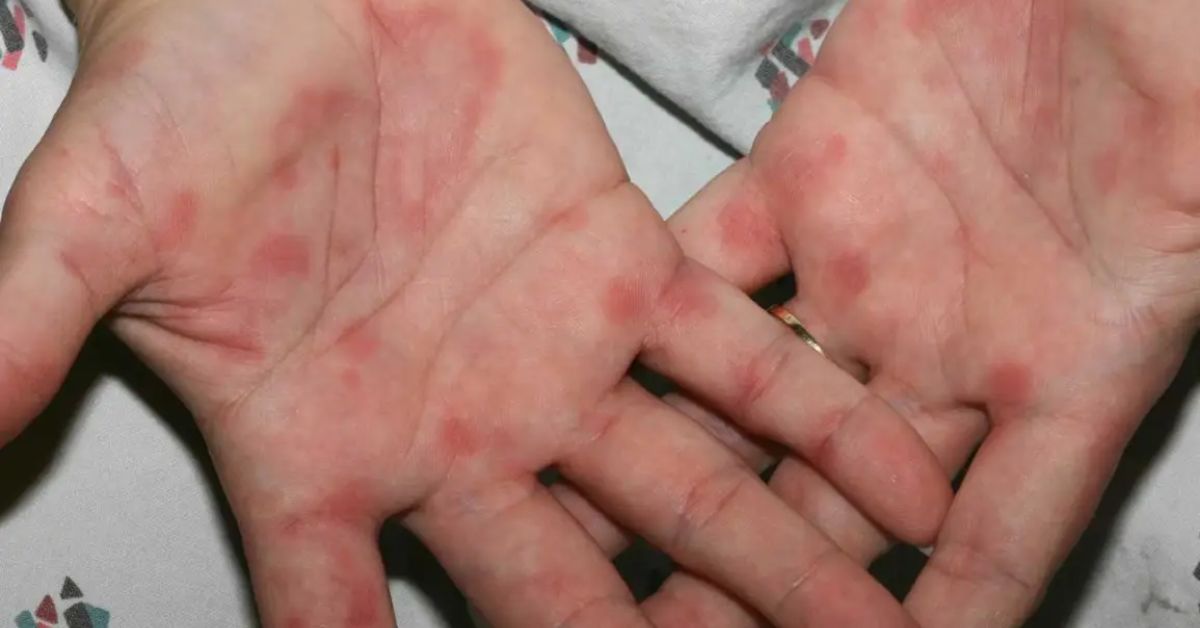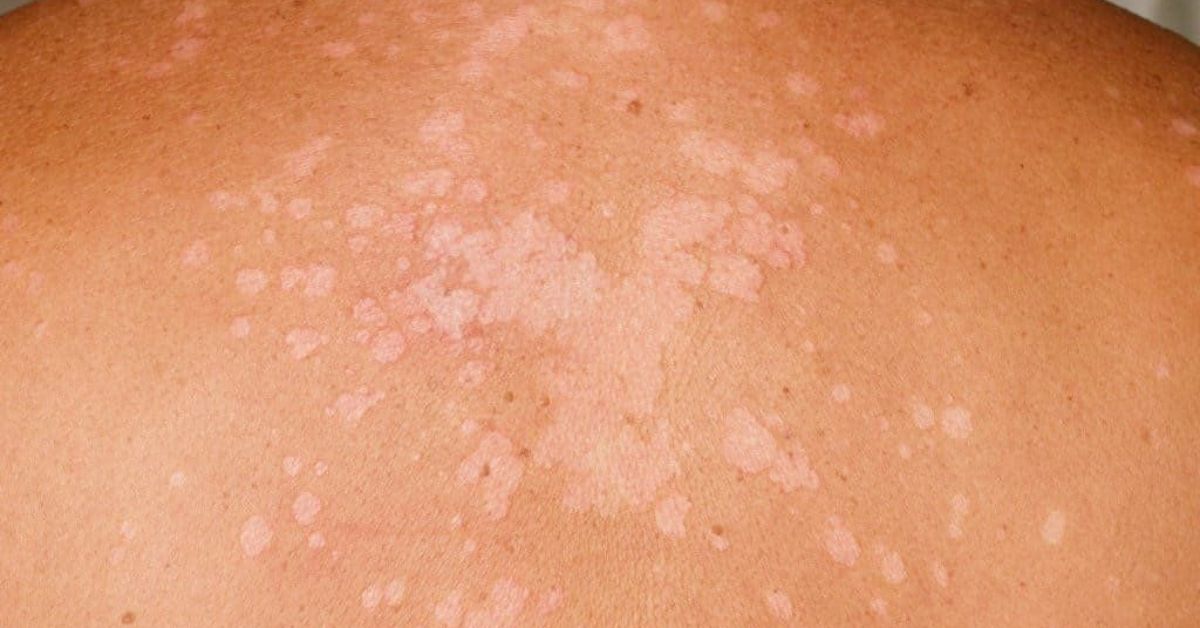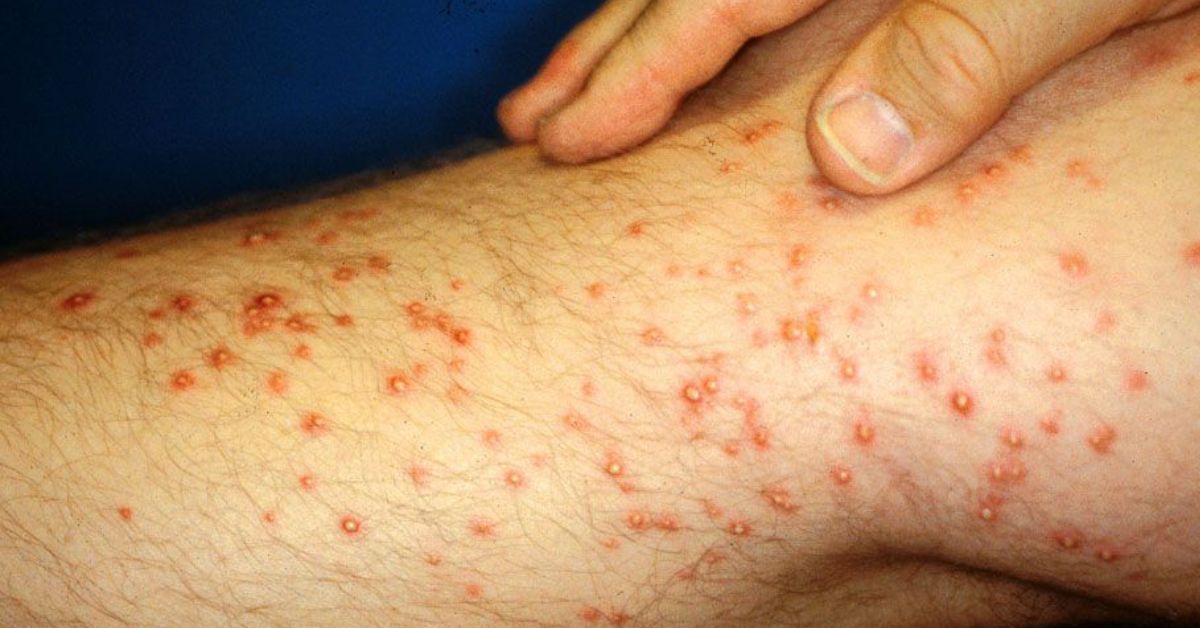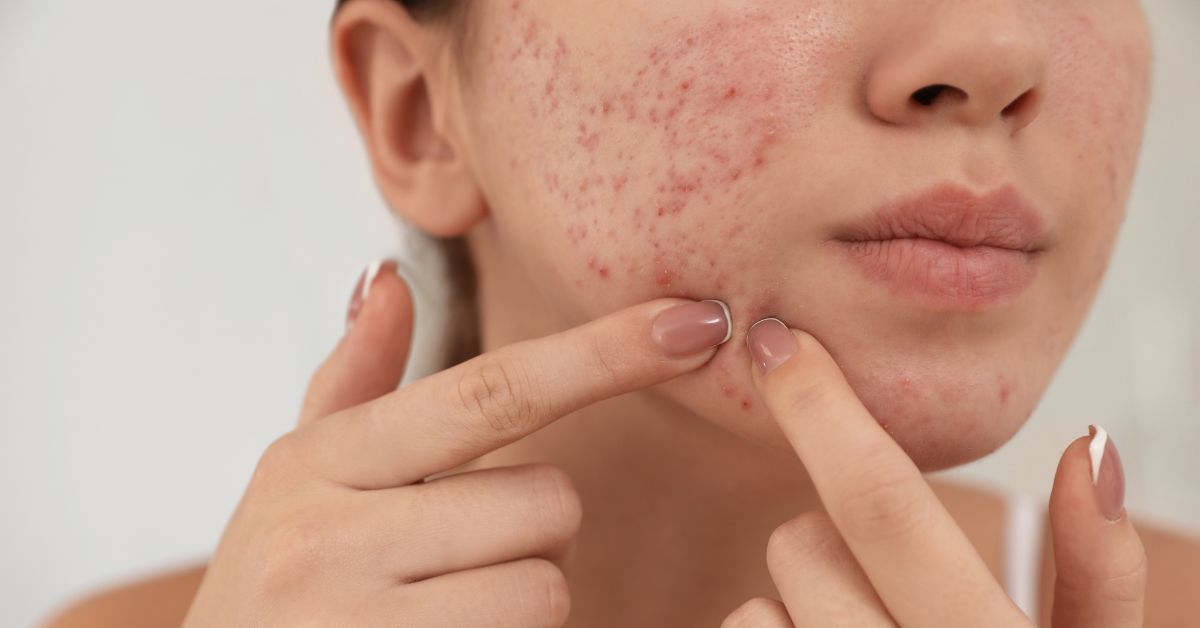Experiencing itching all over the body without a known cause is a common dermatological symptom that causes discomfort and significantly impacts the quality of life of patients. This article will focus on the symptom of generalized itching of unknown origin, with a special emphasis on classifying the levels of itchiness and discomfort patients may experience.
Symptom of Whole-Body Itchiness
Whole-body itchiness refers to a condition where a person experiences generalized itching without a known cause over a prolonged period. This symptom can appear in any area of the body and is often accompanied by signs such as redness, swelling, or rash.
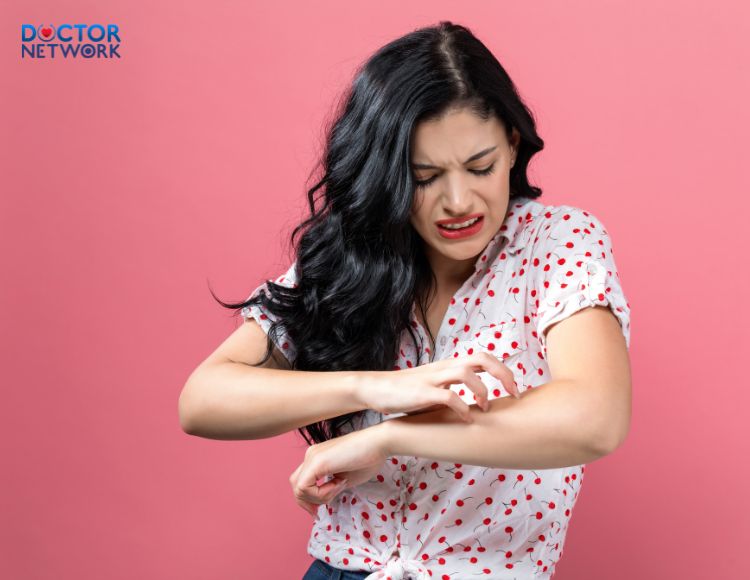
Itching is a common symptom in all ages
Classification of Itchiness and Discomfort Levels
Levels of Itchiness:
- Mild itchiness: The skin feels like it has been bitten by an insect, with slight, localized burning sensations in certain areas.
- Moderate itchiness: The skin turns red, with the appearance of red hives, and itchiness spreads across the body. Patients tend to scratch more.
- Severe itchiness: The skin swells and reddens, with intense itchiness leading to sleep disturbances. Scratches and psoriatic scales may appear due to excessive scratching.
Discomfort Sensations:
- Pricking and burning: The sensation of pricking or burning may accompany itchiness, causing discomfort and anxiety.
- Heaviness and pain: In cases of severe itchiness, patients may describe feelings of pain and heaviness on the skin.
- Mental discomfort: Itchiness can affect the psyche, increasing stress and anxiety.
Potential Causes of Generalized Itching
Medical Causes
1.1 Dermatological Conditions: Treatment and Symptoms
- Dermatitis and Eczema: Conditions such as dermatitis and eczema can cause generalized itching. Treatments focus on controlling inflammation and reducing itchiness with anti-itch creams and antihistamines.
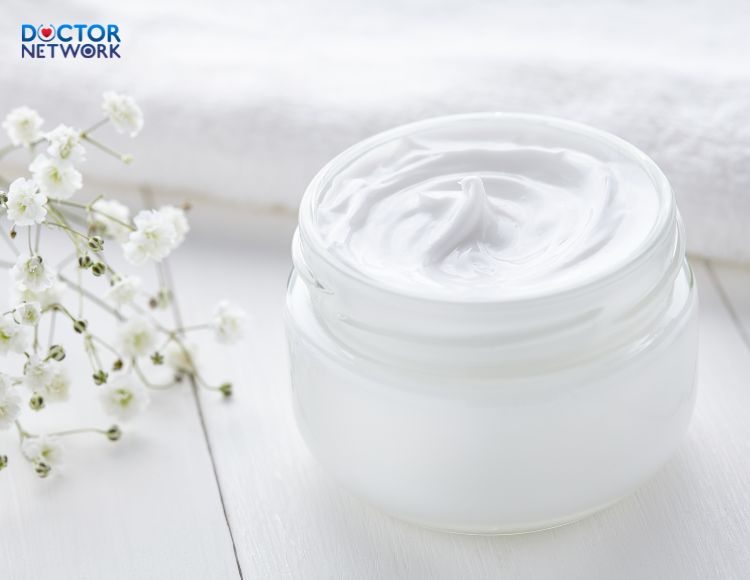
Using anti-itch cream helps reduce inflammation and allergies
- Psoriasis: Skin conditions like psoriasis can also cause itchiness, with treatments such as corticosteroids and other medications used to alleviate symptoms.
1.2 Gastrointestinal Diseases and Skin Impact
- Digestive Issues: Problems with the digestive system, like indigestion, can produce signs and symptoms causing itchiness on the skin. Treating digestive issues may help reduce itching.
- Liver Diseases: Liver issues, such as fatty liver disease or other conditions, can affect the skin and cause itchiness. Treatment focuses on improving liver health and reducing skin impact.
Environmental and Biological Factors
2.1 Environmental Changes Increasing Itchiness Risk
- Climate: Changes in temperature, humidity, and climate can increase the risk of itchiness. The skin often reacts to environmental fluctuations by becoming dry and irritated, creating favorable conditions for itchiness.
- Chemical Exposure: Contact with chemicals in the environment, such as at work or home, can cause skin irritation and itchiness.
2.2 Biological and Genetic Influences
- Biological Factors: Biological elements like allergens can trigger skin reactions, leading to allergic responses and itchiness. Identifying and avoiding these factors is crucial in managing itchiness.
- Genetic Factors: Skin problems can be inherited from one generation to the next, increasing the risk of generalized itching.
Through understanding medical causes and environmental factors, physicians can develop appropriate treatment plans to alleviate itchiness symptoms and improve the quality of life for patients.
Impact on Psychology and Quality of Life
Experiencing itching all over the body without a clear cause significantly affects the psychological well-being and quality of life. Patients often feel anxious and stressed. Sleep is affected. The ability to concentrate on work or studies diminishes. The higher the level of itching, the more negative the impact. This can create a vicious cycle when the itching is persistent. Therefore, it is essential to seek medical examination and analyze the characteristics of the itching to identify its cause, thereby enabling effective treatment. Early treatment helps reduce the negative psychological impact of generalized itching.
Treatment and Management of Generalized Itching
Medical Treatment Methods
1.1 Use of Anti-Itch Creams and Antihistamines
- Anti-Itch Creams: Utilizing anti-itch creams containing ingredients such as calamine or hydrocortisone to reduce itching and skin irritation.
- Antihistamines: Prescription antihistamine medications can reduce allergic reactions and itching.
1.2 Treating the Underlying Condition if Present
- Examination and Treatment for Dermatological Conditions: If conditions like dermatitis or eczema are present, treatment focuses on controlling inflammation and reducing itching symptoms.
- Managing Gastrointestinal Conditions: If gastrointestinal issues are the cause, treating conditions like digestive disorders or liver problems can help alleviate itching.
Natural Remedies and Lifestyle Changes
2.1 Utilizing Natural Methods
- Tea Tree Leaves: With antibacterial and anti-inflammatory properties, tea tree leaves can be used to soothe the skin and reduce itching. Bathing in water infused with tea tree leaves can also be beneficial.
- Coconut Oil: Containing lauric acid, with antibacterial and antifungal properties, coconut oil helps reduce skin irritation and itching.

Coconut oil contains lauric acid, which has anti-bacterial and anti-fungal properties, helping to reduce irritation and itching on the skin
2.2 Dietary and Lifestyle Modifications
- Diet: Limiting foods that may cause allergies or irritate the skin, such as spicy foods and food additives. Incorporating a diet rich in vitamins and minerals can support healthy skin.
- Daily Skin Care: Using chemical-free moisturizers and selecting gentle skin care products to keep the skin hydrated and reduce the risk of irritation.
Consulting with Healthcare Professionals
Experiencing generalized itching without a clear cause requires timely examination and treatment. Steps to take when encountering this condition:
- Consult with a dermatologist or related specialist for examination and identification of the itching cause.
- The doctor will inquire about symptoms, medical history, and conduct a thorough skin examination to diagnose the condition. Blood or skin tests may be ordered if necessary.
- Expert opinion will help accurately identify the cause and outline an appropriate treatment plan.
- Adhere to the treatment regimen and follow up regularly.
- Follow the doctor’s treatment plan diligently and apply the recommended measures.
- Return for follow-up appointments to monitor treatment effectiveness and adjust the treatment plan if necessary.
Therefore, timely consultation and treatment with a healthcare professional can help identify and thoroughly address the cause of itching, minimizing the negative impact of the condition.
Related Research
- Research in the Journal of the American Academy of Dermatology shows that about 8% of adults have experienced prolonged generalized itching without identifying a cause.
- According to a study published in the British Medical Journal, common causes of generalized itching include liver and kidney dysfunction, immune system deficiencies, blood cancers, and thyroid diseases.
- Research in the European Journal of Dermatology indicates that excessive stimulation of sensory receptors on the skin is associated with prolonged generalized itching.
- According to a study by the University of Pennsylvania, generalized itching can be due to nervous system disorders causing abnormal itch sensations.
- Research in the New England Journal of Medicine suggests an imbalance of neurotransmitters may cause prolonged generalized itching.
This article has provided information on experiencing itching all over the body without a clear cause and related information. We hope this article will be useful to you.
Kiểm Duyệt Nội Dung
More than 10 years of marketing communications experience in the medical and health field.
Successfully deployed marketing communication activities, content development and social networking channels for hospital partners, clinics, doctors and medical professionals across the country.
More than 6 years of experience in organizing and producing leading prestigious medical programs in Vietnam, in collaboration with Ho Chi Minh City Television (HTV). Typical programs include Nhật Ký Blouse Trắng, Bác Sĩ Nói Gì, Alo Bác Sĩ Nghe, Nhật Ký Hạnh Phúc, Vui Khỏe Cùng Con, Bác Sỹ Mẹ, v.v.
Comprehensive cooperation with hundreds of hospitals and clinics, thousands of doctors and medical experts to join hands in building a medical content and service platform on the Doctor Network application.
















